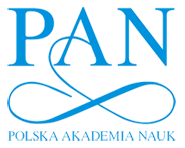- Szczegóły
- Autor: Redaktor Strony Komitetu
- Kategoria: Aktualności i wydarzenia
- Odsłon: 567
Zapraszamy do przeczytania artykułu “The status under EU law of organisms developed through novel genomic techniques”, który ma się ukazać w grudniu w European Journal of Risk Regulation. Współautorem jest nowy członek KB PAN dr Tomasz Zimny
Link do artykułu poniżej:
“The status under EU law of organisms developed through novel genomic techniques”
- Szczegóły
- Autor: Redaktor Strony Komitetu
- Kategoria: Aktualności i wydarzenia
- Odsłon: 870
|
|||||||||
|
|||||||||
|
|||||||||
|
- Szczegóły
- Autor: Redaktor Strony Komitetu
- Kategoria: Aktualności i wydarzenia
- Odsłon: 616
Komitet Biotechnologii PAN zaprasza na webinarium pt.
"Wyzwania i możliwości medycyny regeneracyjnej: Raport EASAC z polskiej perspektywy". Spotkanie odbędzie się 25 listopada 2020 r. w godz. 10.00-14.00.
Informacja o webinarium ukazała się na stronie PAN:
https://informacje.pan.pl/
Natomiast strona konferencji wraz z linkiem do logowania znajduje się pod adresem:
http://konferencja.pan.pl/
Informacje o programie spotkania, prelegentach oraz sposobie połączenia z konferencją (bardzo prosty – wystarczy tylko podać imię i nazwisko, oraz adres email) znajdują się na podanej wyżej stronie
Zachęcamy do zapoznania się z materiałami dostępnymi na stronie, w tym pełnym tekstem raportu EASAC (w j. polskim). „Medycyna regeneracyjna daje nadzieję na leczenie wielu poważnych chorób. Jednak dotąd jej skuteczność potwierdzono w niewielu przypadkach. Mimo to prywatne kliniki – kierując się chęcią zysku – oferują terapie komórkowe o niesprawdzonym działaniu”.
- Szczegóły
- Autor: Redaktor Strony Komitetu
- Kategoria: Aktualności i wydarzenia
- Odsłon: 543
Komitet Biotechnologii PAN podpisuje się pod apelem prezydium Konferencji Rektorów Akademickich Szkół Polskich, Przewodniczącego Rady Głównej Nauki i Szkolnictwa Wyższego, Prezesa Polskiej Akademii Nauk, Przewodniczącego Parlamentu Studentów Rzeczypospolitej Polskiej, Przewodniczącego Krajowej Reprezentacji Doktorantów w sprawie konsekwencji wyroku Trybunału Konstytucyjnego ogłoszonego 22 października 2020.
Pełna treść dokumentuw linku poniżej
- Szczegóły
- Autor: Redaktor Strony Komitetu
- Kategoria: Aktualności i wydarzenia
- Odsłon: 488
Komitet Biotechnologii PAN popiera stanowisko prof. Jerzego Duszyńskiego, prezesa Polskiej Akademii Nauk przedstawione w związku z uzasadnionymi protestami społecznymi przeciwko decyzji Trybunału Konstytucyjnego z dnia 22 października br. Komitet Biotechnologii PAN podkreśla, iż w sprawach dotyczących najbardziej dramatycznych wyborów o przerwaniu lub kontynuacji ciąży decydujący głos powinien należeć do kobiet, wspomaganych przez merytoryczne porady lekarzy-specjalistów.
Poniżej link do postu prof. Jerzego Duszyńskiego zamieszczonego na facebooku.
https://www.facebook.com/jerzy.duszynski.9/posts/4559598394110738




